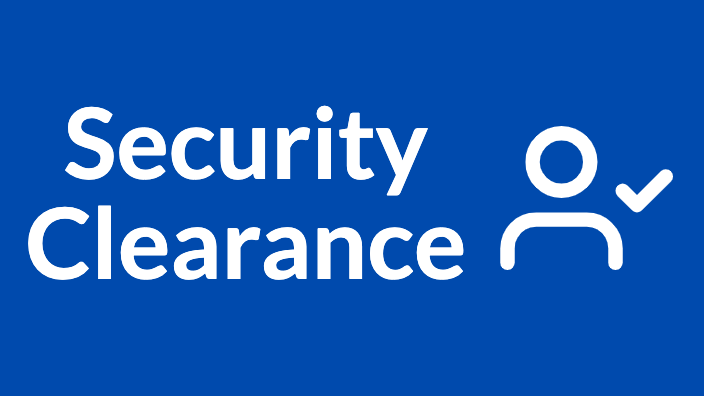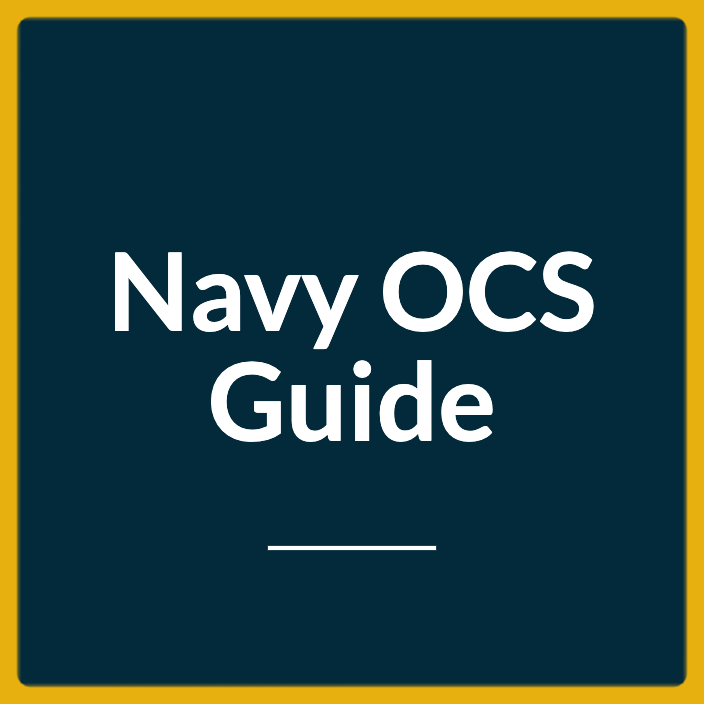Last Updated on September 13, 2023
So you’ve decided to pursue a career as a Navy officer, or you’re at least thinking about it. It’s a path that promises an opportunity for leadership, adventure, and the chance to serve your country.
But beyond the uniforms, ranks, and maritime mystique, there’s a crucial aspect to your military journey that’s often overlooked: Navy Security Clearance.
This authorization is far more than just a stamp of approval; it’s a multi-layered vetting process that is indispensable for almost any role you’ll hold in the Navy.
Stick around; you’ll want to know everything about it.
What is Navy Security Clearance?

Definition
Let’s start with the basics. In the United States Navy, a security clearance is an official authorization granted by the Department of Defense (DoD) that allows service members, including officers, to access classified information and restricted areas.
However, don’t mistake it for some sort of VIP pass. It’s a meticulously calculated decision to determine if you can be entrusted with information that, if fallen into the wrong hands, could be detrimental to national security.
Importance
Why should you care about obtaining a security clearance? Well, it isn’t just a matter of who gets to hear top-secret chatter or view confidential files.
Your security clearance—or the lack thereof—can be a pivotal factor in your Navy career. Certain jobs, known as “designators” in Navy parlance, require at least a basic level of security clearance.
And if you’re aiming for elite positions or specializations, such as becoming an intelligence officer or working with advanced weapons systems, a higher level of clearance is non-negotiable.
Besides specific positions, there are certain Navy-wide programs that require a security clearance.
For instance, the Navy’s Nuclear Propulsion Program requires all its participants to be cleared at least to the Secret level.
If you’re looking to become a Sailor of the Year or make rank more quickly, having your clearance can help you compete in such high-level programs—and potentially give you an edge among your peers.
Types of Security Clearances
In the U.S. Navy, like other branches of the military, security clearances are categorized into three levels:
- Confidential: This is the basic level of clearance. Being granted Confidential clearance means you could be exposed to information that, if disclosed without proper authorization, may cause some measure of harm to national security.
- Secret: One notch higher, Secret clearance is required for roles that need access to information that could cause “serious” damage to national security if improperly handled.
- Top Secret: This is the peak of the clearance mountain. Top Secret clearance is reserved for positions involving information that, if improperly disclosed, could cause “exceptionally grave” damage to national security.
Eligibility and Requirements
Before even dreaming about obtaining security clearance, you’ll need to meet certain eligibility criteria.
Basic Eligibility
Foremost, you must be a U.S. citizen. In some rare instances, non-citizens may get a limited type of clearance, but this is an exception rather than the rule.
If you have dual citizenship, be prepared for additional scrutiny, as this can complicate your clearance process.
In addition, you must have no convictions for a criminal offense or any other behavior that could raise security concerns.
Sometimes, minor offenses may not be disqualifying—but if you’re unsure about the impact of an incident on your clearance eligibility, it’s best to be upfront and honest about it during the application process.
Finally, an extensive background check is required during the security clearance process.
This includes verification of your past education and employment, as well as interviews with friends, neighbors, and colleagues.
Background Check
The cornerstone of obtaining security clearance is the background check. Think of this as a deep dive into your life history. Investigators will look at your employment record, criminal history, credit reports, and even your social media accounts.
Anything that could be a red flag—a criminal record, dubious financial transactions, or questionable foreign contacts—could derail your clearance approval.
The investigator may also interview people who know you, such as friends, family members, or former employers.
They will ask about your personal habits and character traits. This is to make sure that you are someone of sound judgement and trustworthy enough to handle confidential information.
You will need to provide a list of references and contact information for anyone who has known you for over five years. The investigator may ask for additional references if they deem it necessary.
Polygraph Test
For some high-level clearances, especially Top Secret, you might be asked to undergo a polygraph test.
This isn’t a scene from a spy movie; it’s a real and serious evaluation used to verify the information you’ve provided and possibly dig deeper into areas that require clarification.
In the Navy, polygraph tests are used to investigate potential security risks and verify the accuracy of responses given during the security clearance process.
During the test, a trained examiner will ask questions relevant to your job and background.
You’ll be connected to a machine that records physiological responses such as heart rate, sweat gland activity, respiration, and blood pressure in order to detect any inconsistencies in your answers or emotional reactions that could show deception.
Financial Stability
Your financial life needs to be in order, and not just for appearances. A bad credit score or excessive debt can make you susceptible to bribes or coercion, posing a potential security risk.
So pay your bills on time and manage those student loans wisely.
The military requires that you maintain good financial stability in order to get and/or maintain a security clearance.
When you apply for a clearance, you must fill out a detailed financial disclosure form and provide supporting documents.
This helps the government determine if you have any financial obligations that could influence or manipulate your decisions.
Having poor credit or enormous debt can show an inability to handle money responsibly, resulting in a denial of clearance. Therefore, it’s important to keep your finances in check.
The Security Clearance Process
You won’t get your clearance overnight. It’s a step-by-step journey, so let’s break it down.
Initial Paperwork
First, you’ll fill out the SF-86, a comprehensive form that asks for extensive details about your life. The form serves as your formal application for clearance.
Next, you’ll need to provide evidence that confirms the information that you provided on your SF86.
This may include birth certificates, passports, driver’s licenses, marriage, and divorce papers, financial records, tax returns, and addresses of residences going back up to 10 years.
You will also need to provide names and contact information for people who can verify the information you have provided.
Investigation Phase
After your SF-86 is submitted and reviewed, an actual background investigation begins. Investigators will verify the information you’ve provided, potentially interviewing your references, employers, and even neighbors.
The investigators may also check to see if you have any criminal records. If anything suspicious is found, or if there are discrepancies in the information you provided, it can lead to a denial of your security clearance.
Once the background investigation is complete, your application will be forwarded to the Department of Defense Consolidated Adjudicative Services (DoD CAS) for review and approval.
This process can take anywhere from several months to one year or longer.
Adjudication
It’s judgment day. The decision has been made: either to grant or deny your security clearance. But what went into making this decision?
For the U.S. Navy, it all begins with the background investigation phase. During this process, the investigator collects a variety of information from several sources, including but not limited to references you have provided, interviews, and credit reports.
This information is then reviewed by the Department of Defense CAS for possible eligibility access.
Factors such as criminal activity, foreign influence, sexual behavior, and financial matters are considered when making a security clearance decision.
The result can range from a Secret to Top Secret security clearance. Each level of clearance is issued with varying levels of access based on the security risk that an individual may pose.
It’s important to note that even with a security clearance, some information may still be off limits.
Ultimately, all clearances are granted or denied at the discretion of the Department of Defense.
Periodic Reinvestigation
It’s important to remember that security clearances have an expiry date. It is important to make sure that you keep track of your clearance expiration dates and schedule a review and investigation in order to renew it before it expires.
Confidential security clearances last for 15 years, Secret clearances for 10 years, and Top Secret clearances for five years.
After these periods have expired, another background investigation must be undertaken in order to renew the clearance.
In the meantime, it is important to maintain an outstanding record and stay compliant with any regulations that may affect your security clearance status.
How to Prepare
Preparation is more than half the battle. Let’s discuss some strategies.
Keep Records
If you’re applying for a navy security clearance, expect to be asked to provide detailed records.
This includes your employment history, past, and present places of residence, all foreign travel, and any personal relationships that could interest the government, particularly those involving non-U.S. citizens.
In order to make the process easier on yourself, it’s a good idea to keep detailed records and have them ready for when the background investigation begins.
Pre-Screening
Pre-screening is a process the Department of Defense and other federal agencies used to evaluate potential security clearance applicants.
Pre-screening applies to both military personnel and civilians, and helps determine whether an individual should be considered for a security clearance.
During pre-screening, an applicant’s background is checked against certain criteria set by the Department of Defense.
This usually includes a review of the individual’s criminal history, financial background, and overall honesty.
Once an applicant has been pre-screened, they can then submit their SF-86 for processing.
Financial Review
Being financially responsible is an important part of being granted a security clearance by the U.S. Navy.
The U.S. Government has to ensure that all those it grants a security clearance to are in a strong financial standing and can be trusted with access to sensitive information and require regular checks into your finances before granting you access to classified data.
This means that as part of the security clearance application process, you will be required to complete a financial review and provide financial documents such as bank statements, credit reports, tax records, and proof of income.
Importance of Maintaining Your Clearance
Once you have it, keeping your security clearance should be a top priority. It’s a valuable credential that not only validates your trustworthiness but also makes you more marketable for advanced roles within the Navy and even in civilian jobs post-service.
Maintaining your security clearance is important for a variety of reasons. First, it’s often required for roles in the military that involve information handling and other activities with sensitive data.
Without a valid clearance, you may be ineligible to fulfill certain duties or take on higher-level positions, regardless of how qualified you are.
Besides being necessary for military roles, having an active security clearance can be beneficial in the civilian sector.
Many employers, especially those in government contracting and other industries that involve handling sensitive information, require applicants to possess or be eligible for a security clearance.
A valid clearance can give you an edge over your competition with finding a job after leaving the military.
Tips for Success
- Full Disclosure: Always be upfront and honest when filling out forms or being interviewed. Attempts to hide or falsify information will almost certainly lead to denial.
- Consult an Advisor: Your command security manager can guide you through the process, offering invaluable insights that could mean the difference between approval and denial. If you’re still joining, your recruiter can help with the security clearance process.
- Be Patient: The process can be time-consuming, often taking several months. Maintain your focus and patience; the clearance is well worth the wait.
Final Thoughts
Embarking on a career as a Navy officer is a monumental commitment, and understanding the nuances of Navy Security Clearance is a crucial part of that journey.
It’s not just a formality; it’s your key to unlocking a multitude of opportunities, both in the service and potentially afterward.
With thorough preparation, honesty, and a dash of patience, the security clearance process can become a navigable part of your Navy experience, one that ultimately enriches your military career.
So here’s to setting sail on a well-prepared journey. You’re not just joining the Navy; you’re joining an elite group of individuals committed to safeguarding their country.
And that, my friends, starts with safeguarding its secrets. Good luck and smooth sailing!


